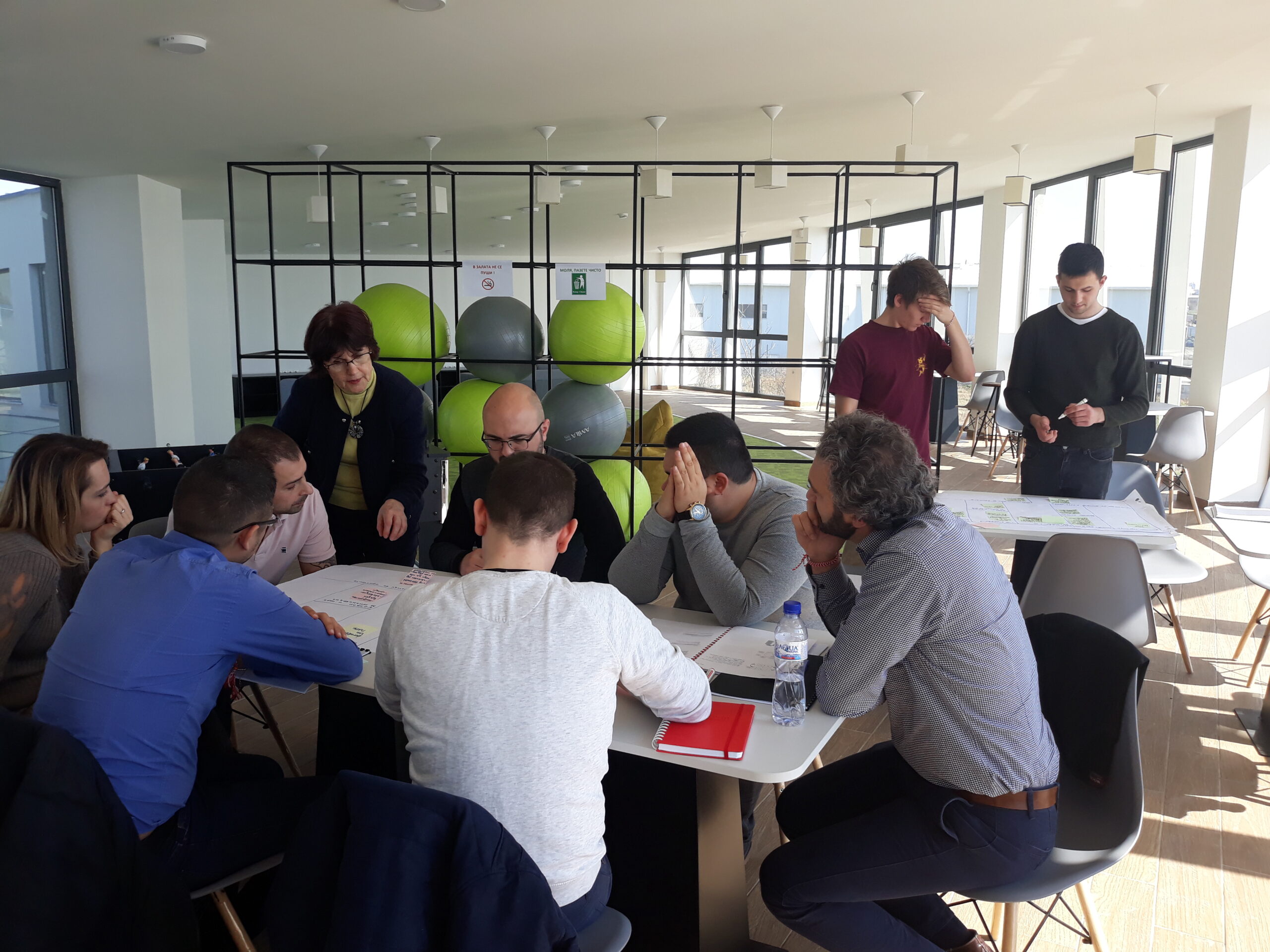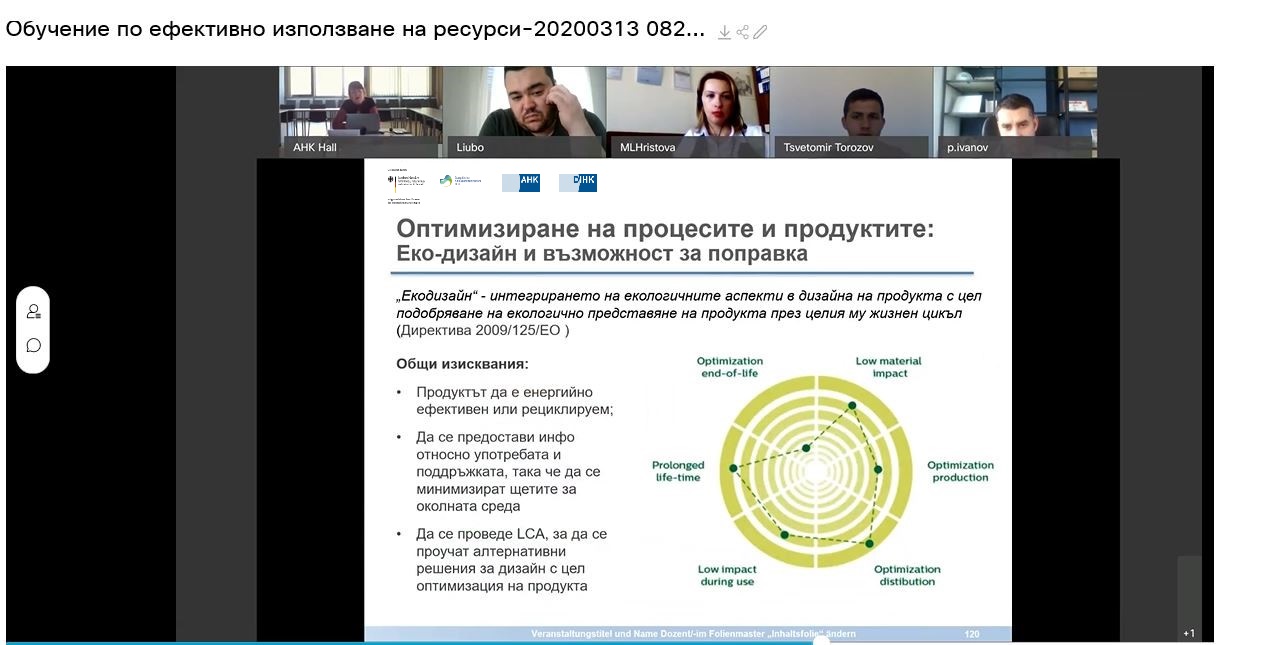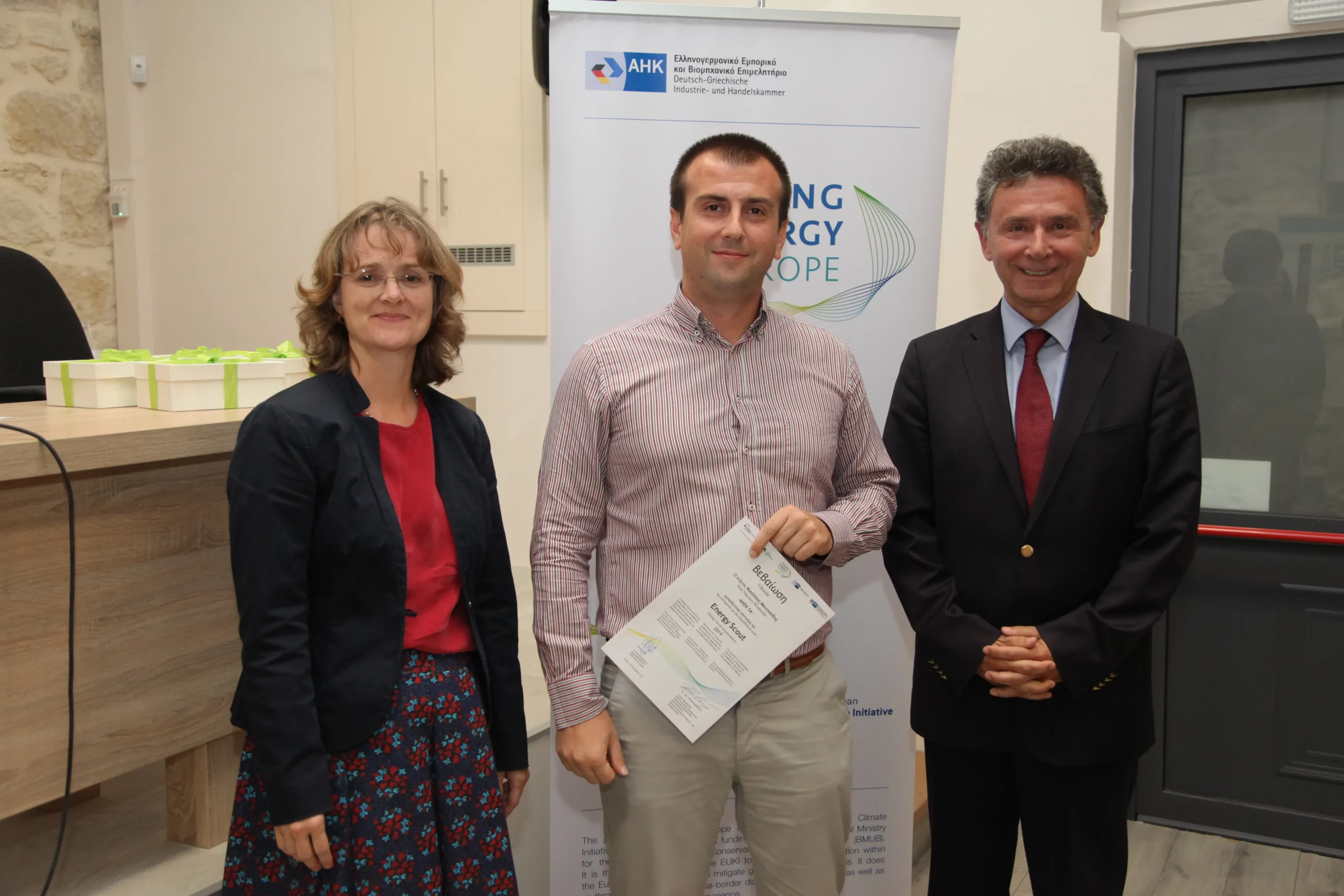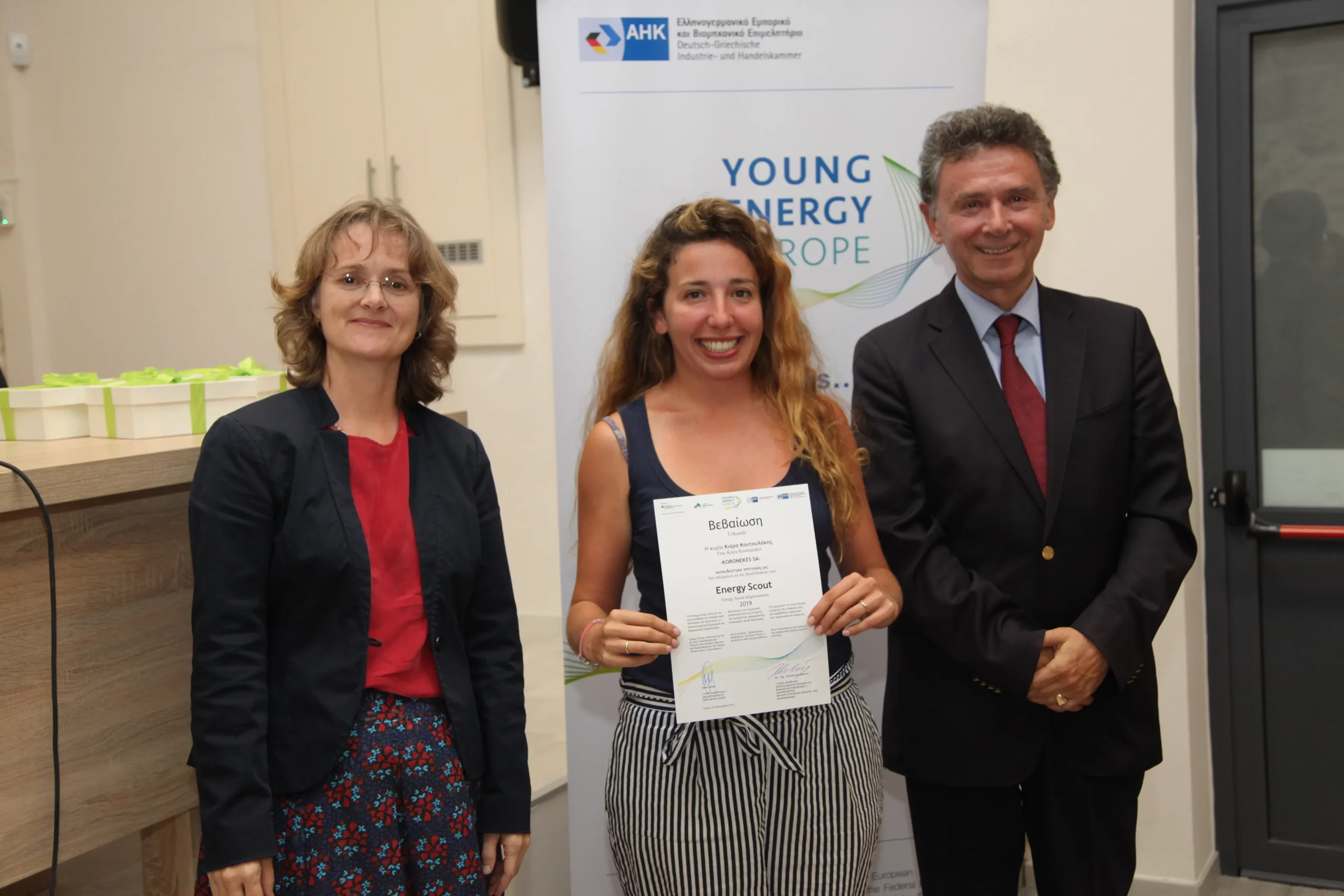Further Information


On 6 March all Energy Scouts from the Burgas area were still able to meet live and in groups to go through the training topic of project management. On this occasion the YEE team introduced Energy Scouts and tutors to the online conference system WebEx.
On 11 March – shortly before the general curfew in Bulgaria – the training on mobility followed. Seven Scouts took part on site with sufficient distance from each other and nine Scouts joined the training online from Burgas, Varna and Shumen.
On 12 March the topic of presentation techniques, which are more difficult to teach digitally, was discussed. Seven Scouts were on site in Burgas. The last seminar with the focus on resource efficiency took place on 13 March in Burgas, the lecturer was the only person in the room. All Energy Scouts connected online – from their companies or from the home office.

Advantages and disadvantages of online trainings
Crucial for the successful implementation was the joint test of software and hardware with tutors and Energy Scouts. After downloading the software, all Energy Scouts could join the test. On the hardware side, desktops, laptops or tablets have proven to be effective – following presentations over a longer period of time on smartphones is difficult and potentially costly due to the high data volume. With online training courses, even in times without coronavirus, participants can economize on travel costs and shorter breaks are possible. In small groups of up to ten people, an exchange or even discussions are very well possible, says Krassimira Dimitrova.
The main disadvantage is the missing personal exchange and informal networking between lecturers and Scouts during the breaks which makes social contact more difficult. Currently this social distancing is a necessary and widely accepted consequence.
In the future, Young Energy Europe will focus on digital solutions wherever possible and reasonable in order to continue the success story of the Energy Scouts.



